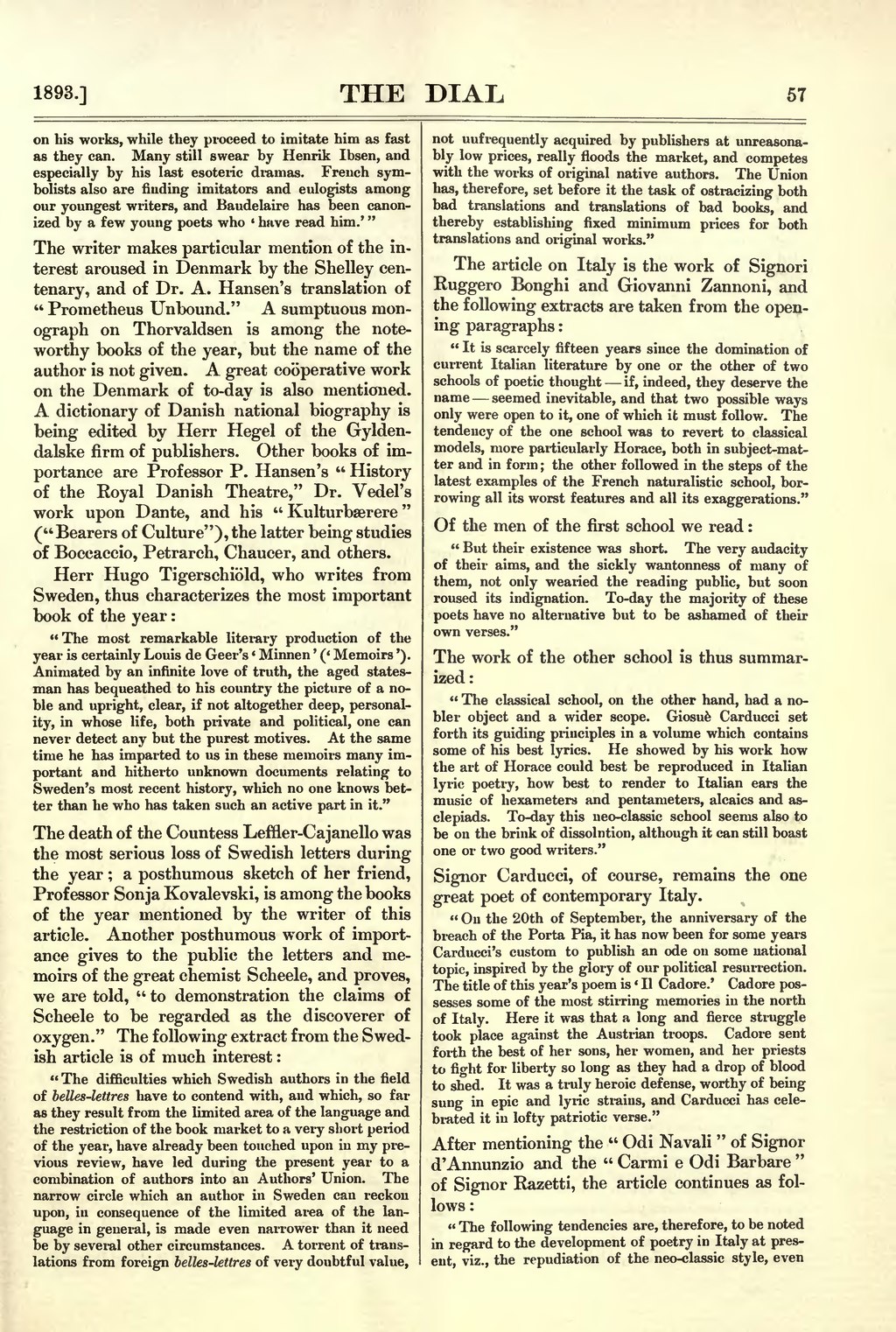The writer makes particular mention of the interest aroused in Denmark by the Shelley centenary, and of Dr. A. Hansen's translation of "Prometheus Unbound." A sumptuous monograph on Thorvaldsen is among the noteworthy books of the year, but the name of the author is not given. A great coöperative work on the Denmark of to-day is also mentioned. A dictionary of Danish national biography is being edited by Herr Hegel of the Gyldendalske firm of publishers. Other books of importance are Professor P. Hansen's "History of the Royal Danish Theatre," Dr. Vedel's work upon Dante, and his "Kulturbaerere" ("Bearers of Culture"), the latter being studies of Boccaccio, Petrarch, Chauncer, and others.
Herr Hugo Tigerschiöld, who writes from Sweden, thus characterizes the most important book of the year:
"The most remarkable literary production of the year is certainly Louis de Geer's 'Minnen' ('Memoirs'). Animated by an infinite love of truth, the aged statesman has bequeathed to his country the picture of a noble and upright, clear, if not altogether deep personality, in whoose life, both private and political, one can never detect any but the purest motives. At the smae time he has imparted to us in these memoirs many important and hitherto unknown documents relating to Sweden's most recent history, which no one knows better than he who has taken such an active part."
The death of Countess Leffler-Cajanello was the most serious loss of Swedish letters during the year; a posthumous sketch of her friend, Professor Sonja Kovalevski, is among the books of the mentioned by the writer of this article. Another posthumous work of importance gives to the public the letters and memoirs of the great chemist Scheele, and proves, we are told, "to demonstration the claims of Scheele to be regarded as the discoverer of oxygen." The following extract from the Swedish article is of much interest:
The difficulties which Swedish authors in the field of belles-lettres have to contend with, and which, so far as they result from limited area of language and the restriction of the book market to a very short period of the year, have already been touched upon in my previous review, have led during the the present year to a combination of authors into an Authors' Union. The narrow circle which an author in Sweden can reckon upon, in consequence of the limited area of the language in genera, is made even narrower than it need be by several circumstances. A torrent of translations from foreign belles-lettres of very doubtful value, not unfrequently acquired by publishers at unreasonable low prices, really floods the market, and competes with the works of original native authors. The Union has, therefore, set before it the task of ostracizing both bad translations and translations of bad books, and thereby establishing fixed minimum prices for both translations and original works."
The article on Italy is the work of Signori Ruggero Bonghi and Giovanni Zannoni, and the following extracts are taken from the opening paragraphs:
"It is scarcely fifteen years since the domination of current Italian literature by one or the other of two schools of poetic thought—if, indeed, they deserve the name—seemed inevitable, and that two possible ways only were open to it, one of which it must follow. The tendency of the one school was to revert to classical models, more particularly Horace, both in subject-matter and in form; the other followed in the steps of the latest examples of the French naturalistic school, borrowing all its worst features and all its exaggerations."
